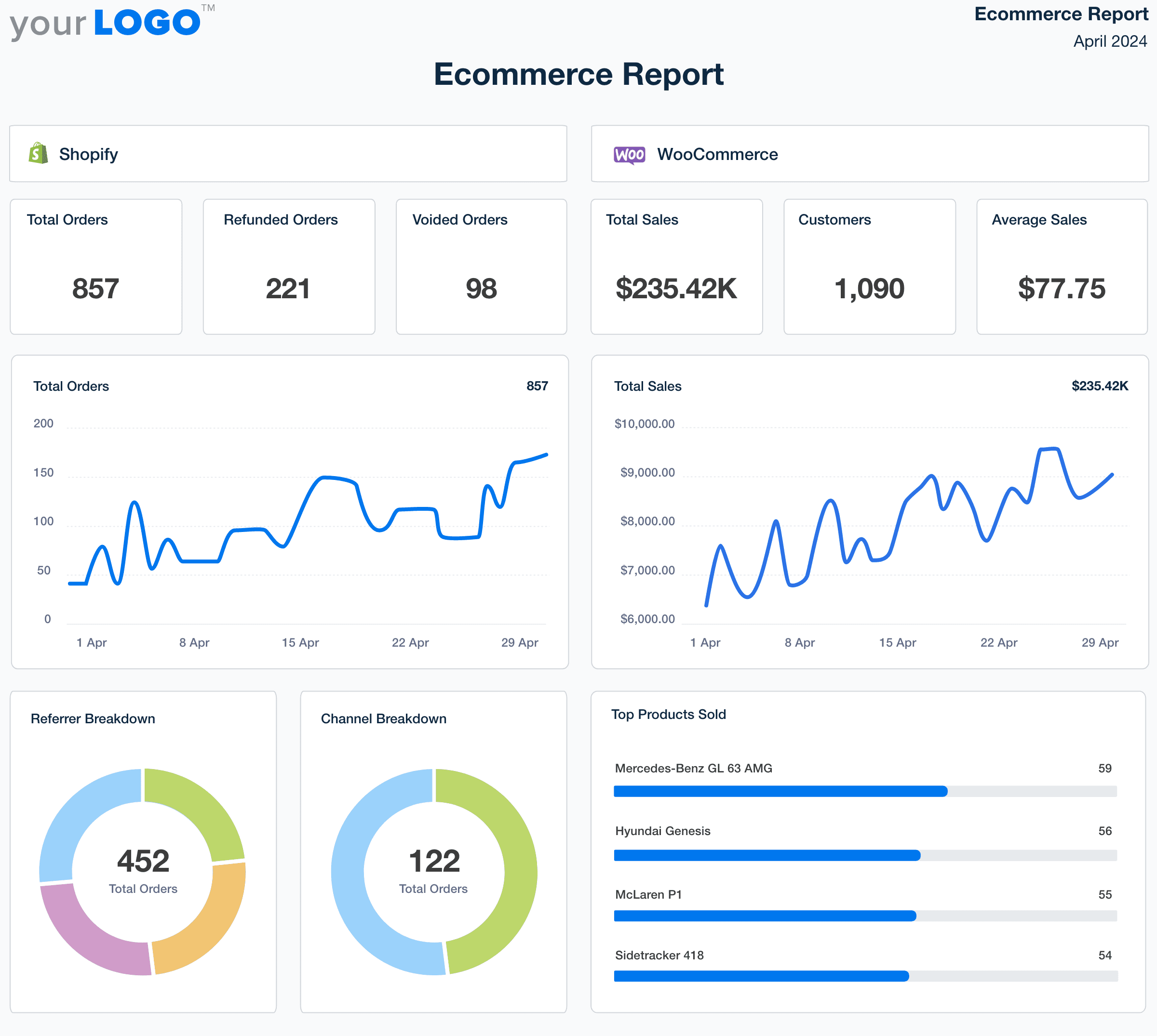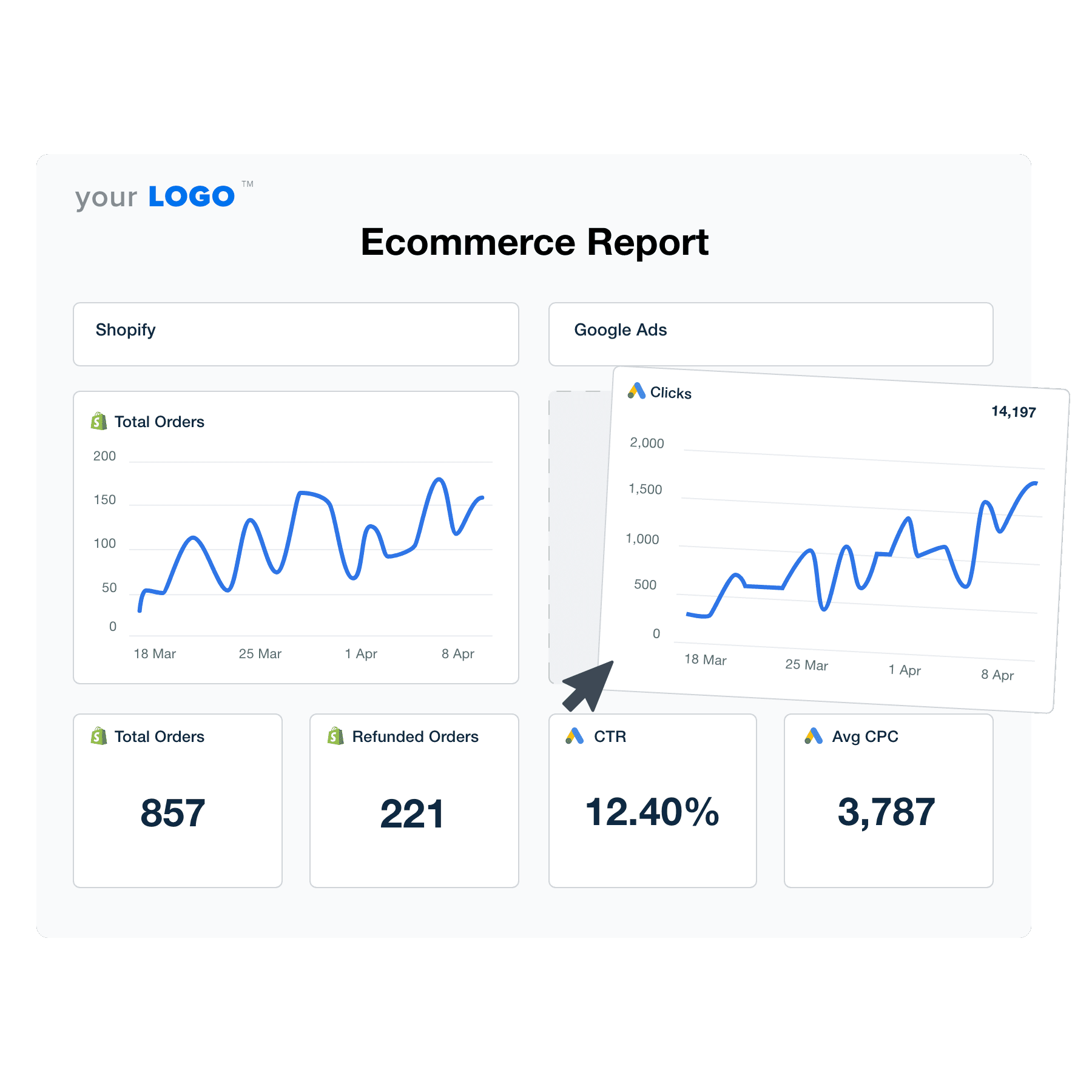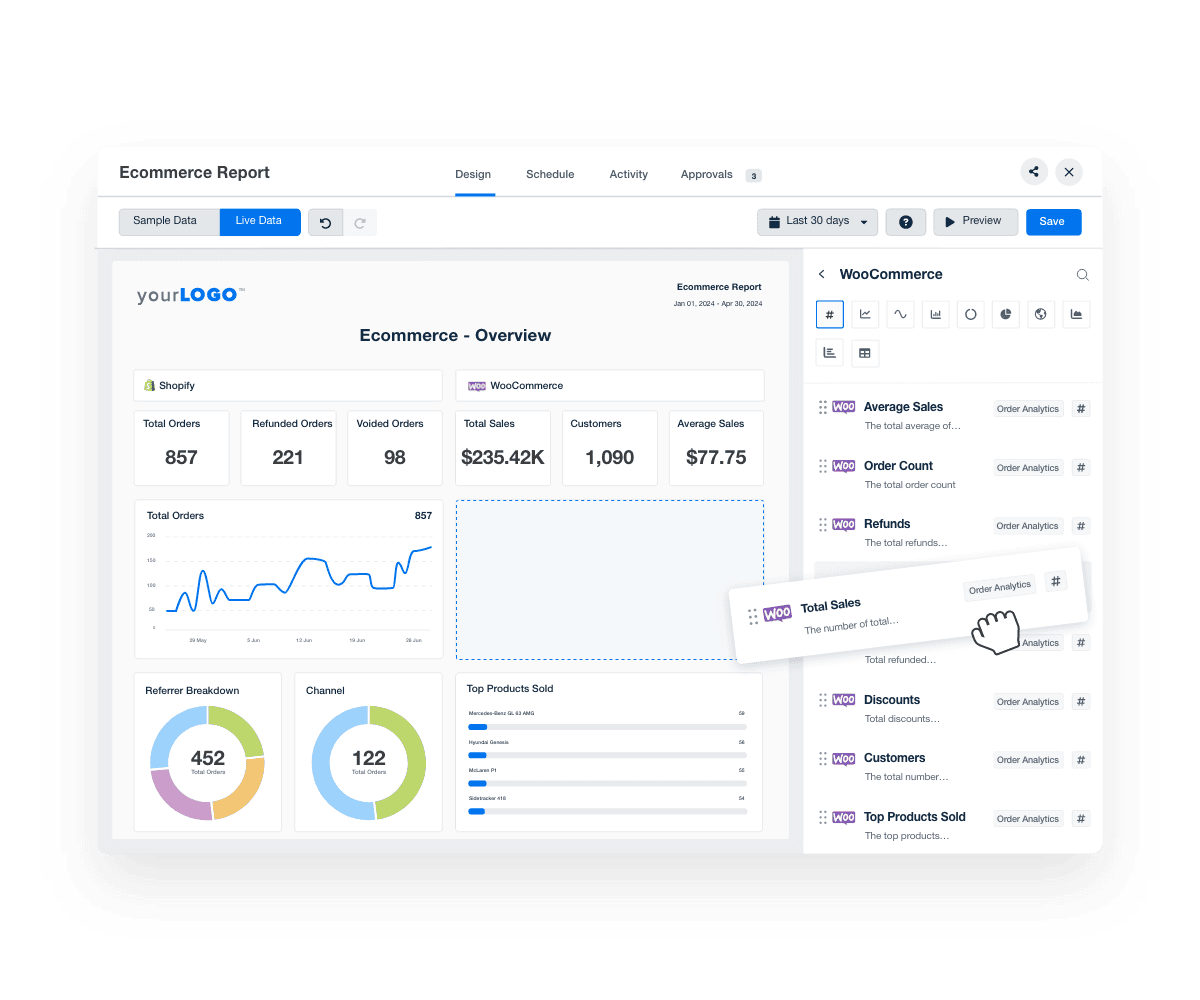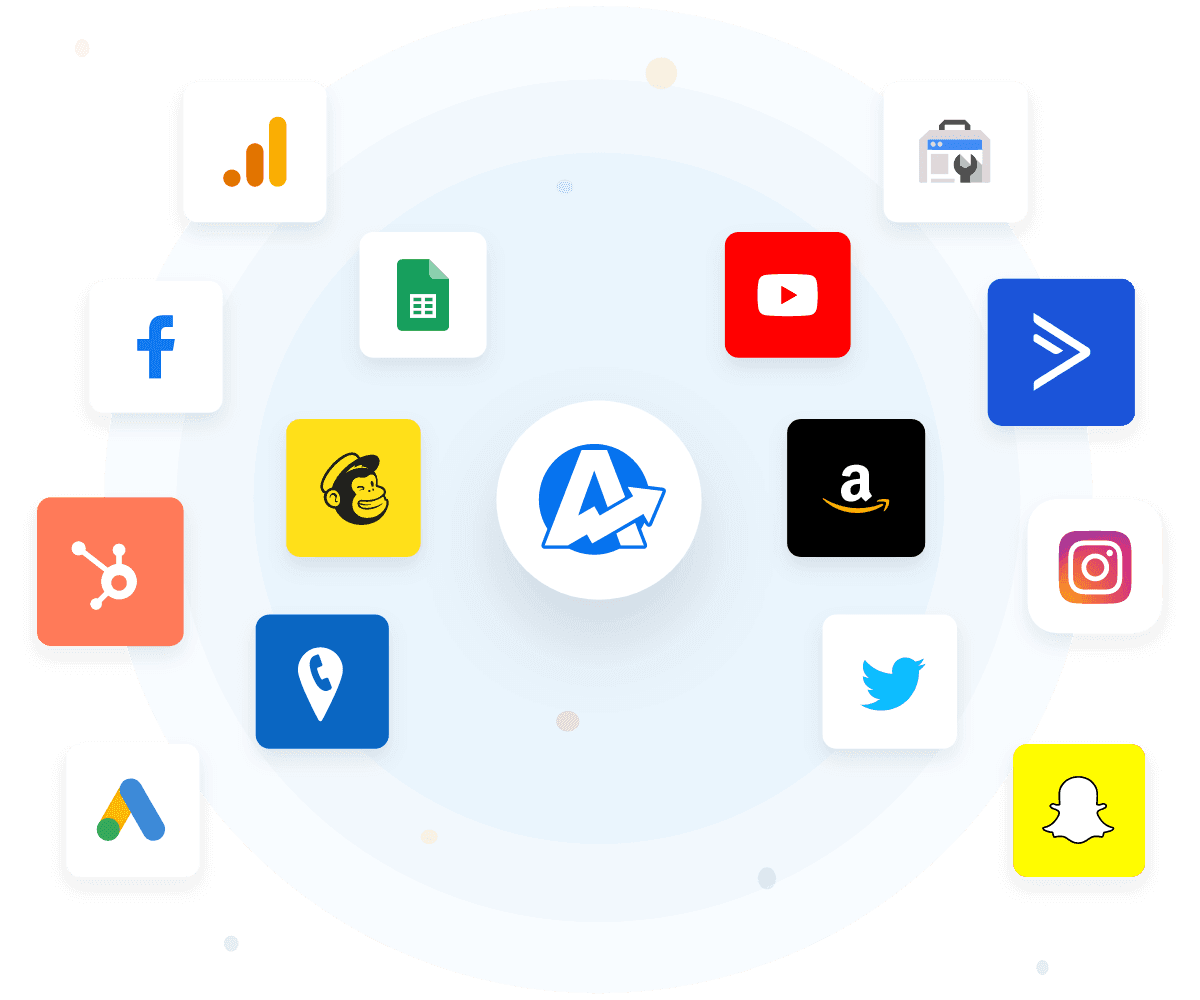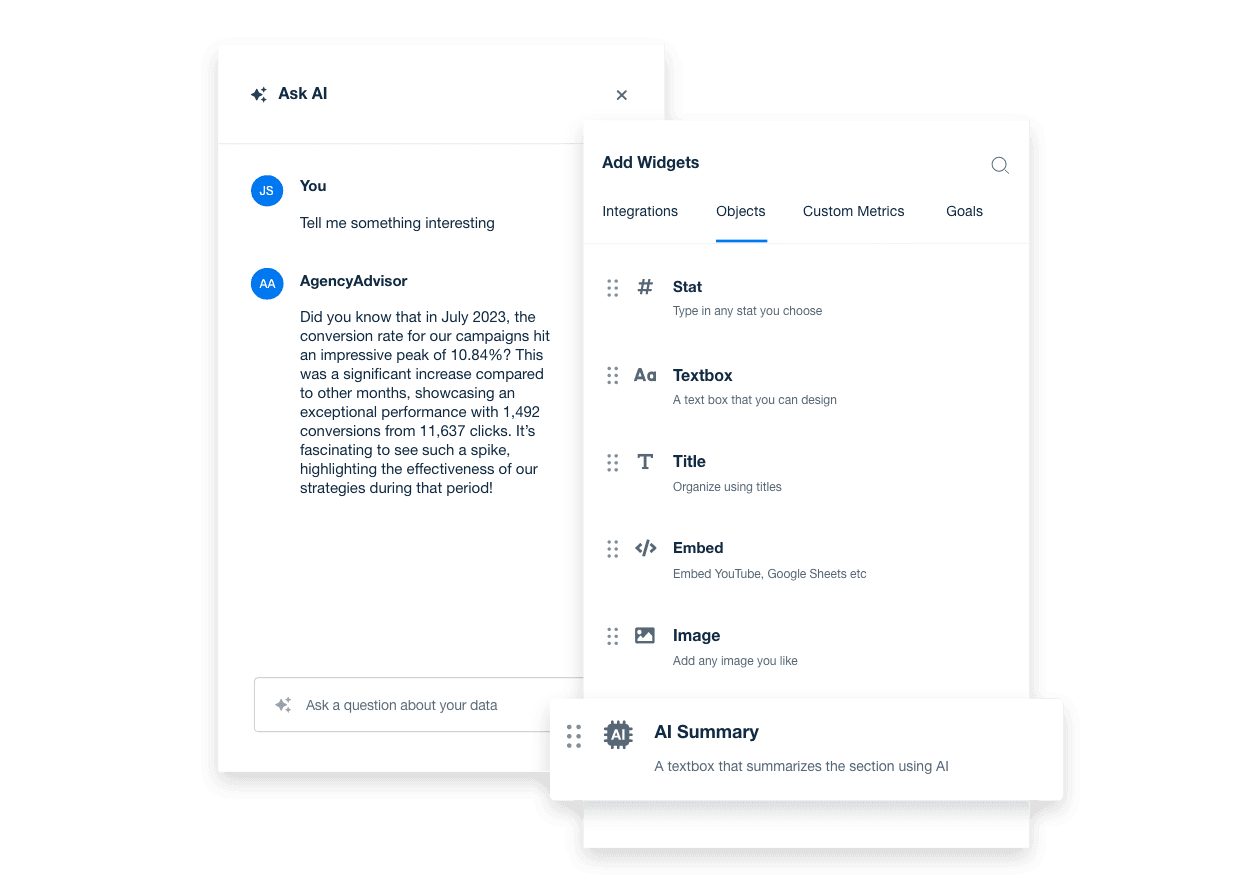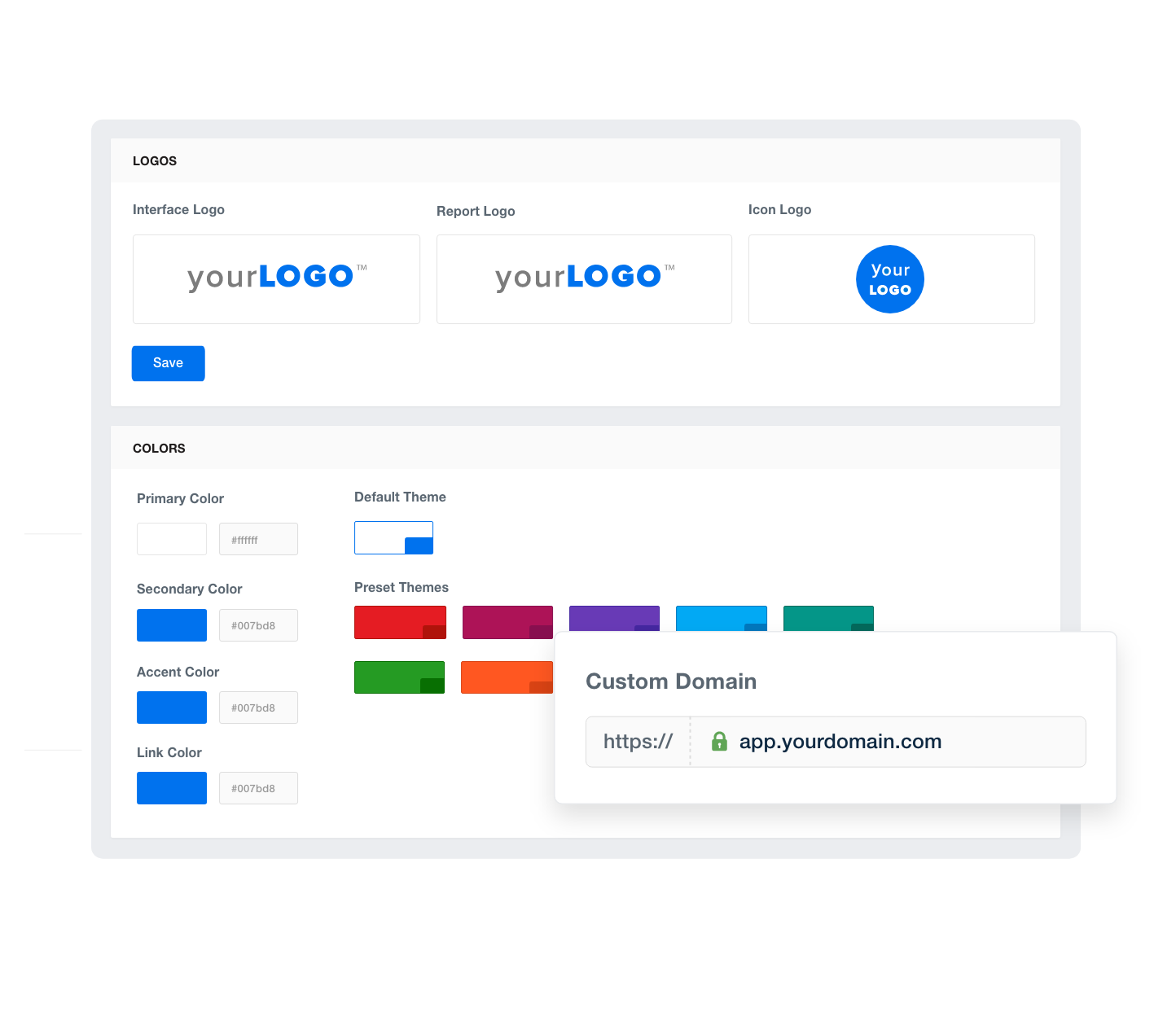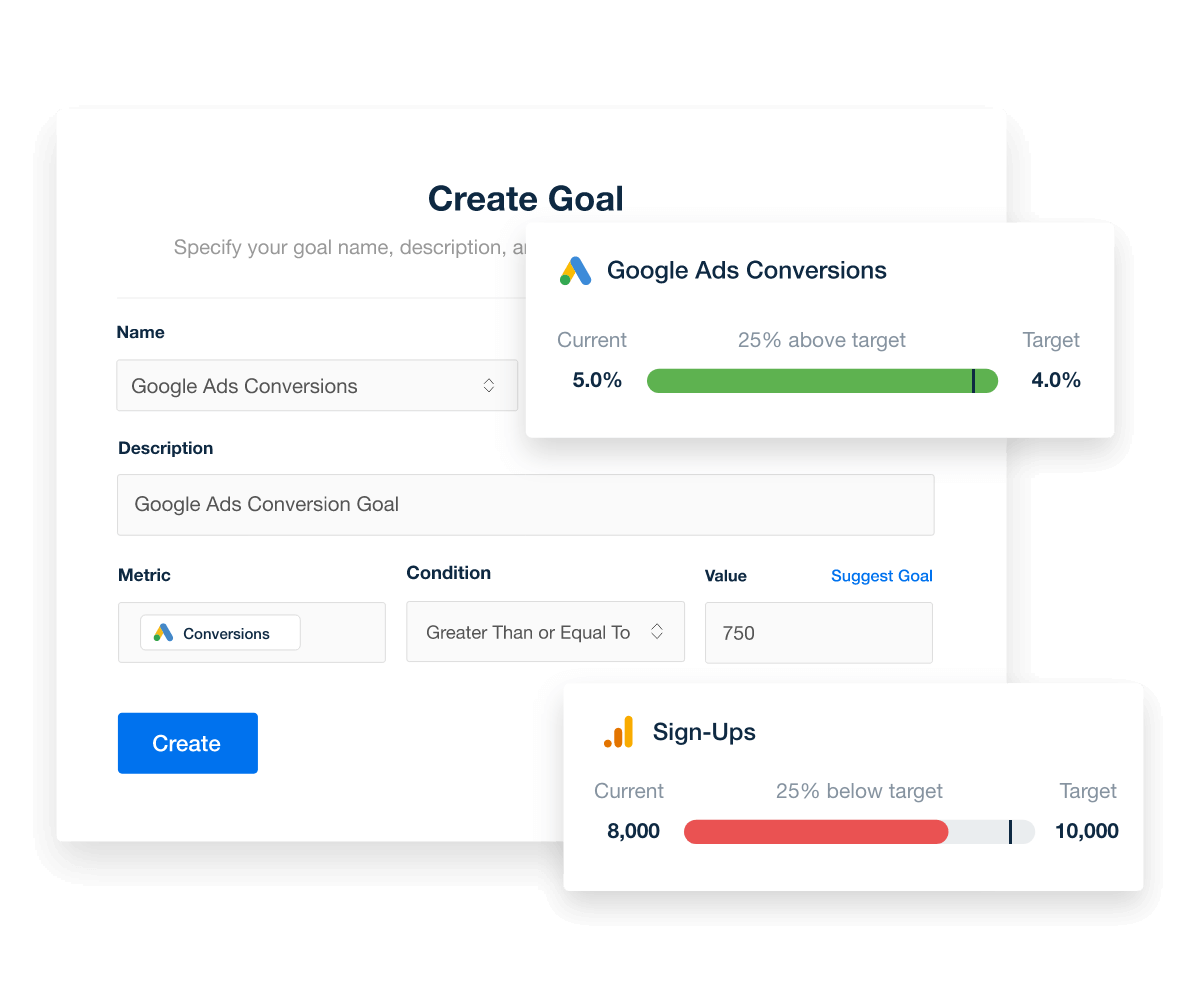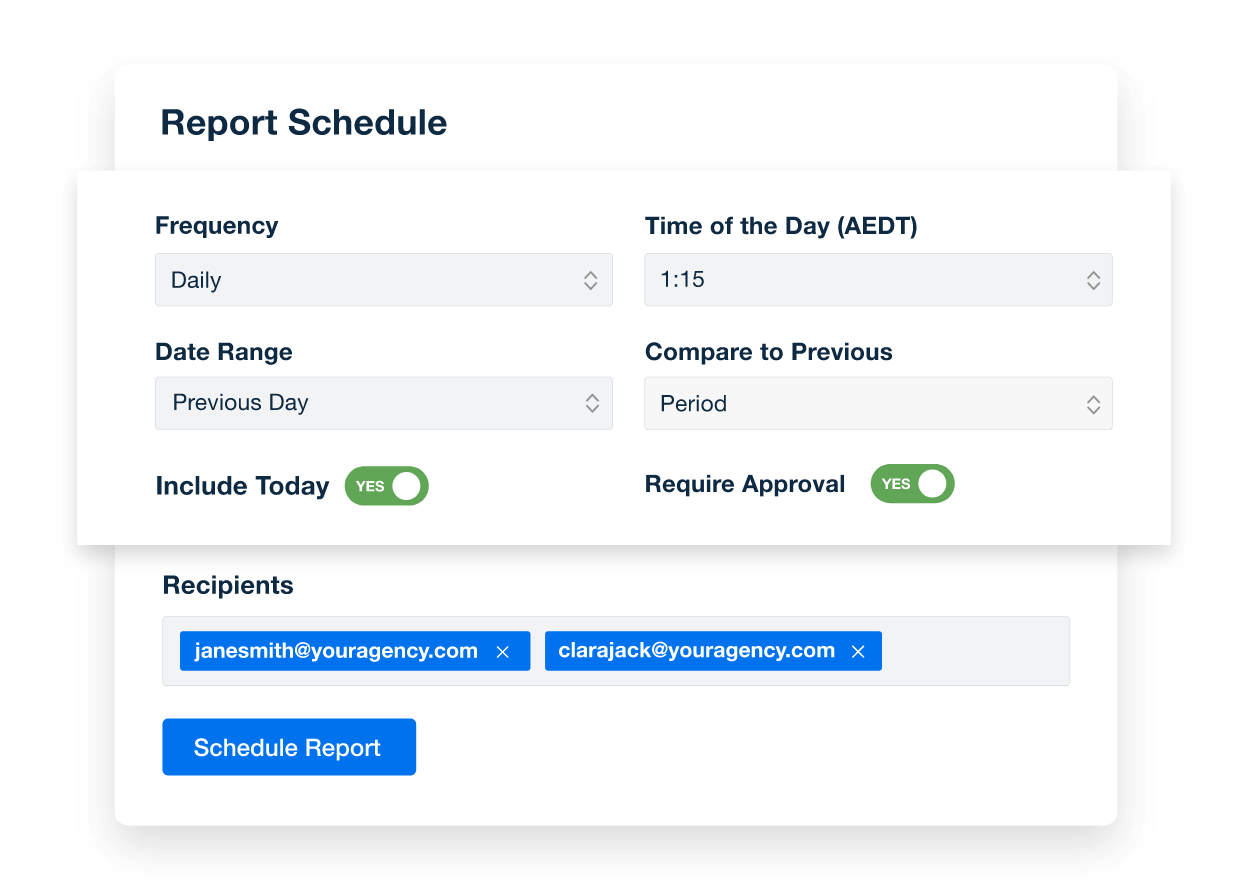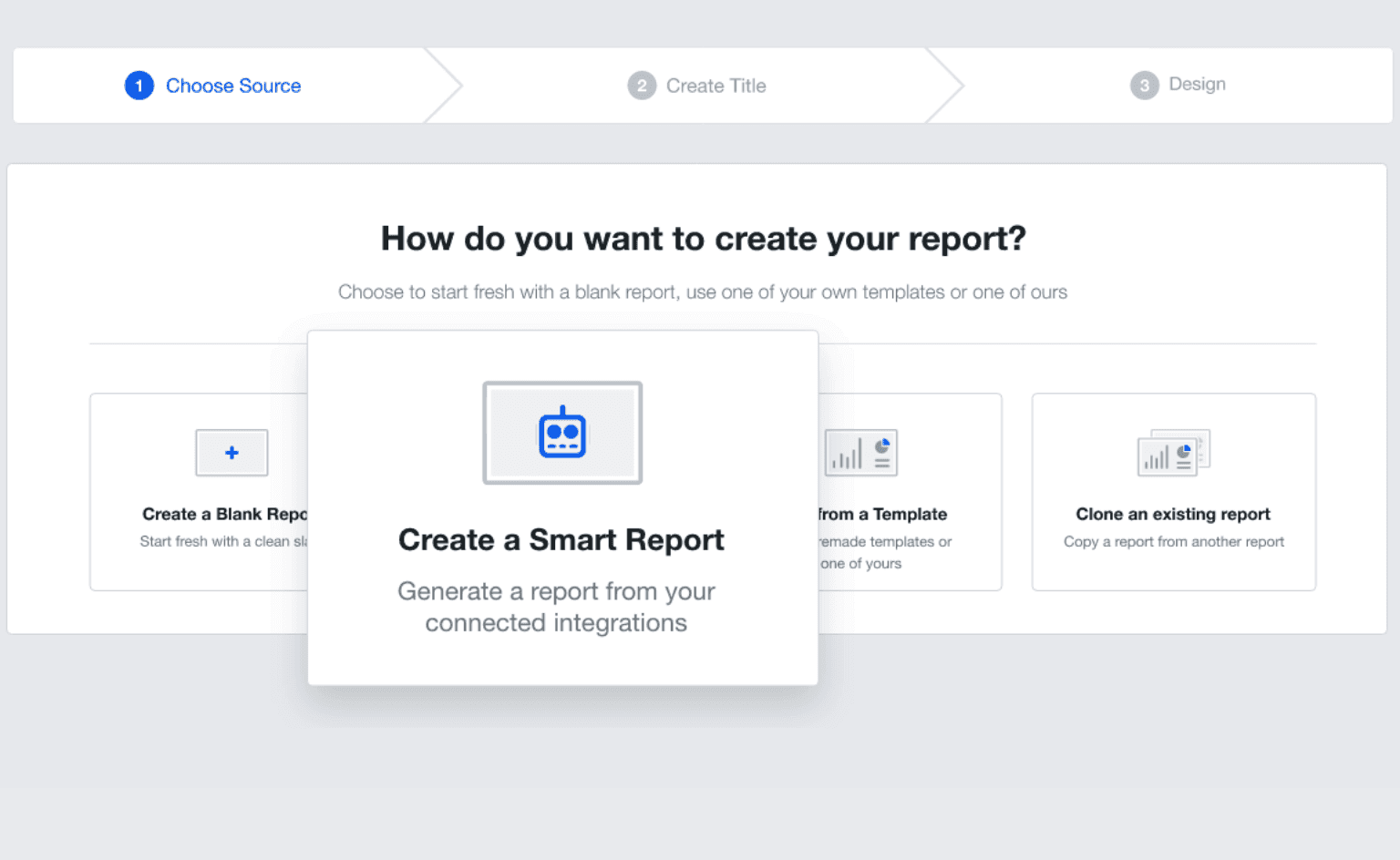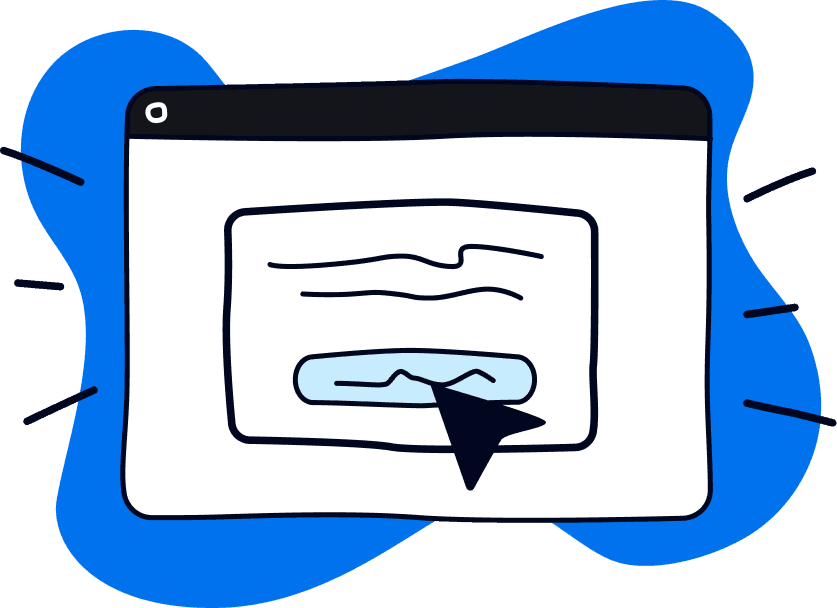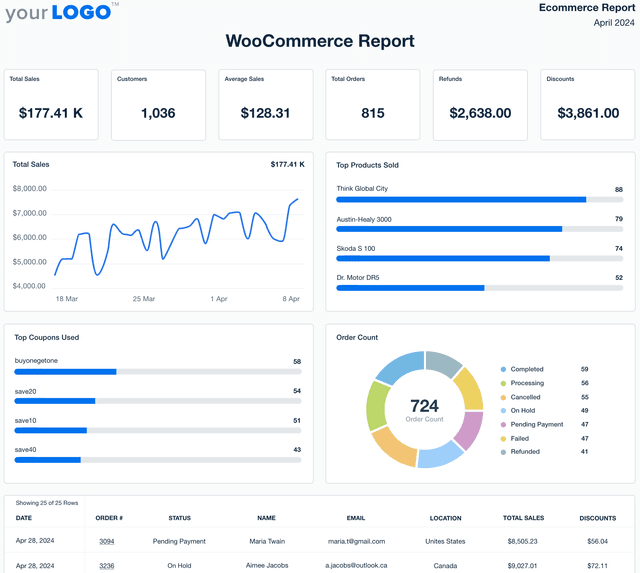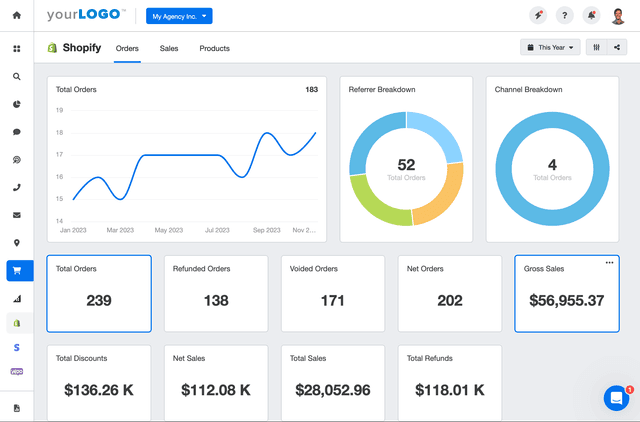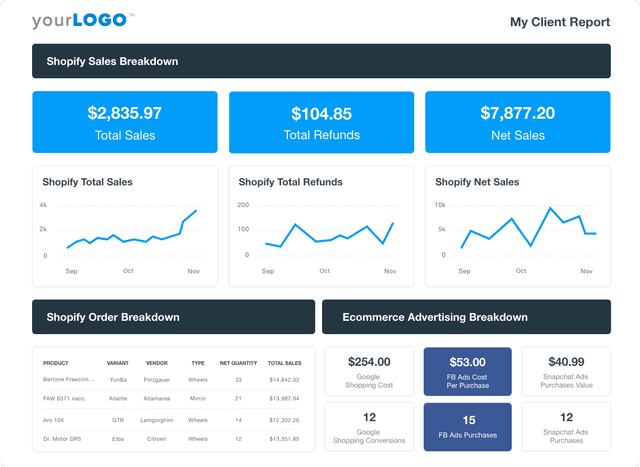Ecommerce Report Template for Clear, Actionable Insights
Customizable Ecommerce Report Templates That Prove Your Impact
Share polished, client-ready reports that clearly show how your agency drives ecommerce growth. Customize layouts, apply white-label branding, and tailor each report to highlight the KPIs that matter most—like revenue, ROAS, and conversion rates.
Templates connect to live data from 80 ecommerce and marketing platform integrations to eliminate manual work and reduce errors. Deliver consistent, transparent reporting that keeps clients informed and reinforces your agency’s role as a strategic partner.
Custom Ecommerce Reports as Unique as Your Agency
Instantly Access All Your Clients’ Ecommerce Metrics
Effortlessly pull all your clients' ecommerce data from Shopify, WooCommerce, BigCommerce, and more and place them alongside key metrics from over 80 marketing integrations and data points—all in one location.
Tie performance to customer acquisition cost by aligning ecommerce transactions to ad spend, website traffic, earned media value, and more.
Pull and integrate data seamlessly from diverse sources and eliminate the hassle of managing multiple tools.
Turn Ecommerce Metrics into Insights in Seconds
With AI-powered insights, surface actionable recommendations for your client's ecommerce business faster than ever.
Ask AI transforms complex ecommerce data into client-ready takeaways in seconds. From top-selling products to conversion trends and customer behavior, AI Summary delivers high-level overviews that help your team stay focused and give your clients confidence in your ecommerce strategy.
White Label Your Ecommerce Reports
Fully customize and white label your ecommerce reports to reinforce your agency's brand with every client interaction.
Match your agency's logo and colors to provide a professional and consistent look that builds trust and enhances your agency's credibility.
Set Ecommerce Goals and Hit Targets
Track progress and highlight achievements directly within reports with custom goal-setting and annotations. Mark important milestones to help clients see the value your agency delivers.
Strengthen client relationships through transparent and measurable success that builds trust.
Put Your Ecommerce Reporting on Autopilot
Automate your communication by scheduling client reports to deliver consistent and timely updates directly to your clients' inboxes.
Save time, reinforce your agency's commitment to transparency and proactive management, and boost client satisfaction and retention.
Automate Reporting and Focus On What Matters
Smart Reports leverage each client's connected integrations to deliver tailored insights and ensure every report is as unique as the client it serves.
Give clients a clear view of their key metrics and showcase your agency’s skill at collecting and interpreting data faster than ever.
11 Key Sections Included in the Ecommerce Report Template
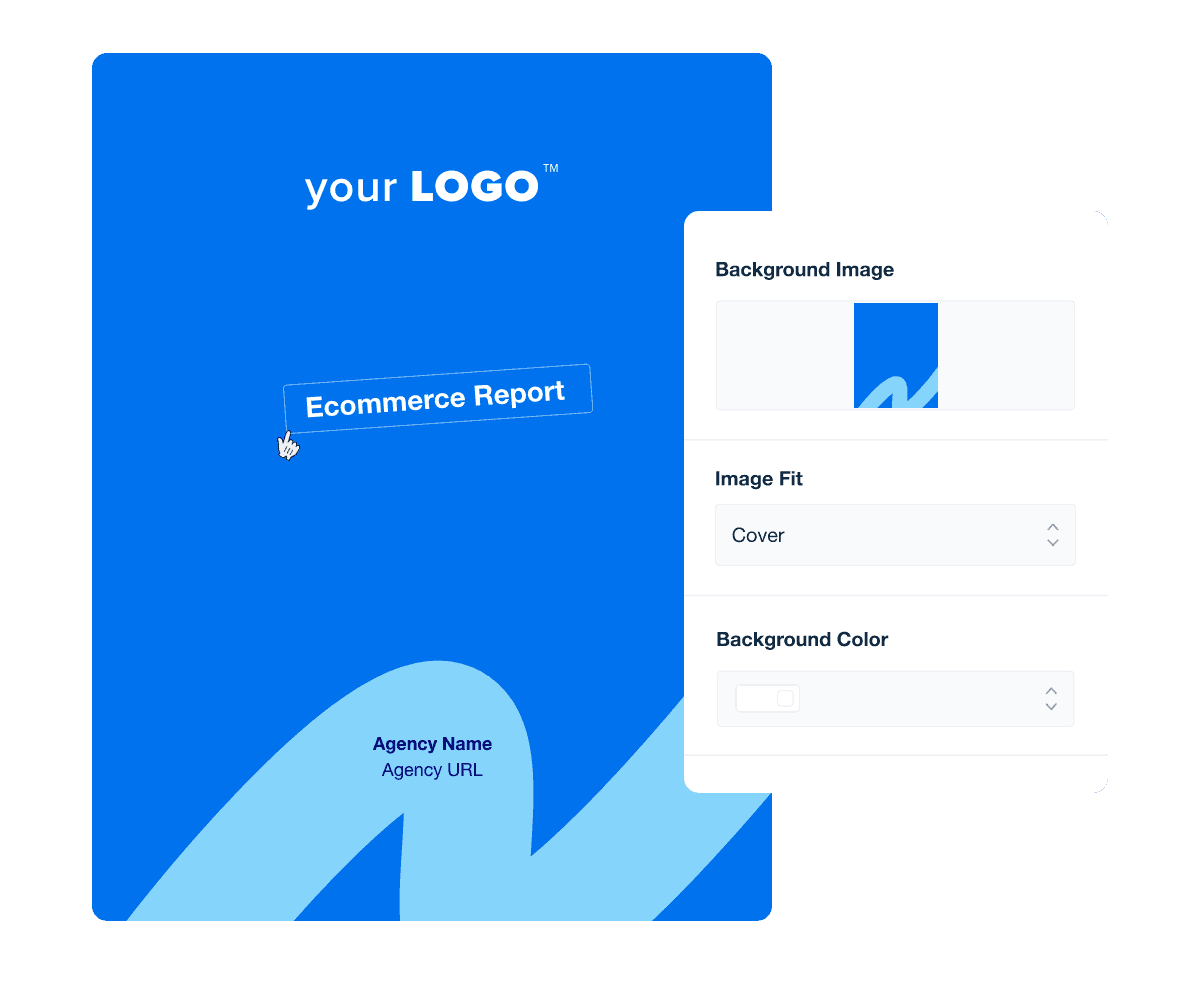
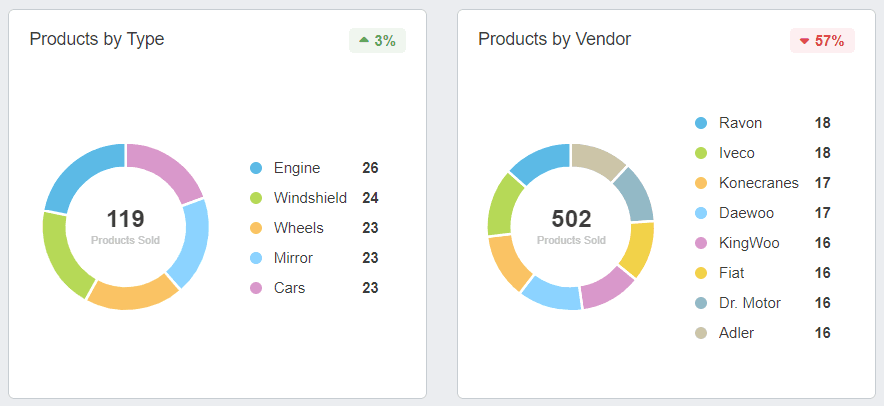
FAQs About Custom Ecommerce Report Templates
Still have questions about how to create and use custom Ecommerce Report Templates? Don’t worry, we’ve got you covered.
An Ecommerce Report Template is a structured framework designed to help agencies and businesses track, analyze, and communicate the performance of their online sales and marketing efforts. It consolidates data from various sources, providing insights into how different strategies contribute to the overall ecommerce business success.
Essential metrics encompass total sales, conversion rates, average order value, and customer acquisition costs. Incorporating data from tools like Google Analytics and Google Ads allows for a comprehensive view of marketing performance. Additionally, tracking the effectiveness of advertising campaigns and the performance of various marketing campaigns provides a holistic understanding of the ecommerce strategy.
By analyzing key performance indicators, businesses can identify which marketing campaigns are most effective in driving sales and customer engagement. This insight enables the adjustment of strategies to optimize marketing performance, allocate resources efficiently, and enhance the overall ecommerce strategy.
Yes, ecommerce reporting can be automated using platforms that integrate data from various sources into one cohesive Ecommerce dashboard. Automation streamlines the reporting process, reduces manual errors, and ensures timely delivery of insights, allowing businesses to focus on strategic decision-making.
Utilizing an Ecommerce Report Template offers several advantages:
Efficiency: Saves time in data collection and analysis.
Clarity: Presents data in an understandable format for stakeholders.
Consistency: Standardizes reporting across different marketing campaigns.
Actionability: Highlights areas for improvement to drive business growth.
Absolutely. The template can be tailored to align with specific business objectives, target audiences, and marketing strategies. Customization options may include selecting particular metrics, adjusting visual elements, and integrating additional data sources to provide a more holistic view of marketing activities.
Agencies showcase SEO performance first using the SEO report template, followed by social media results with the social media analytics report. Paid advertising metrics are detailed in the PPC monthly report template, and website visitor data is highlighted in the website analytics report template. These reports are often combined into a single digital marketing report template.
See how 7,000+ marketing agencies help clients win
Free 14-day trial. No credit card required.


